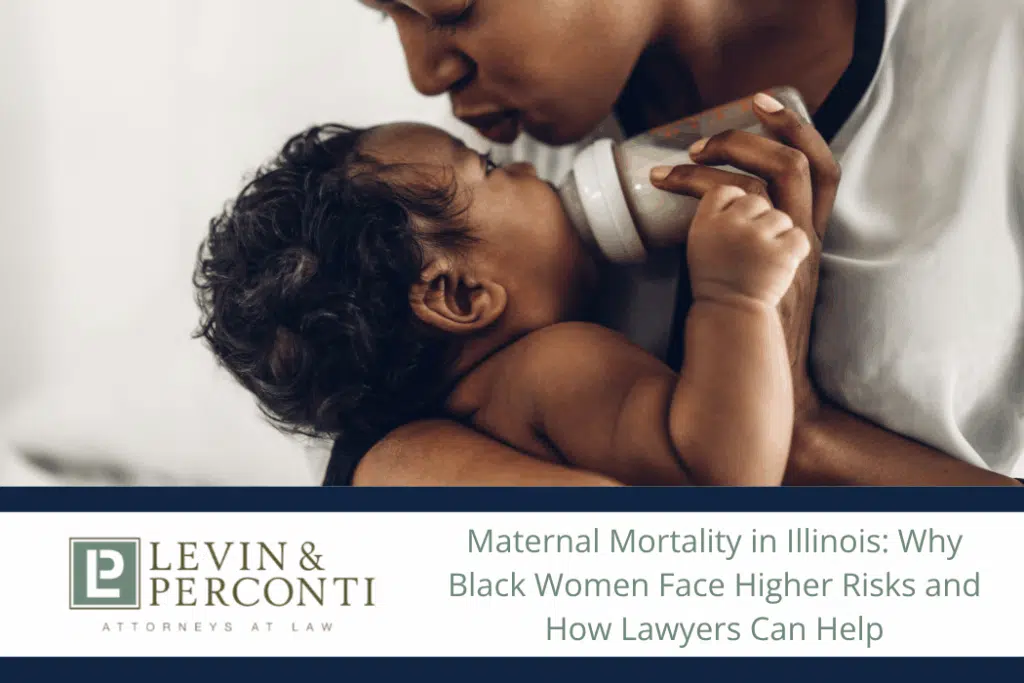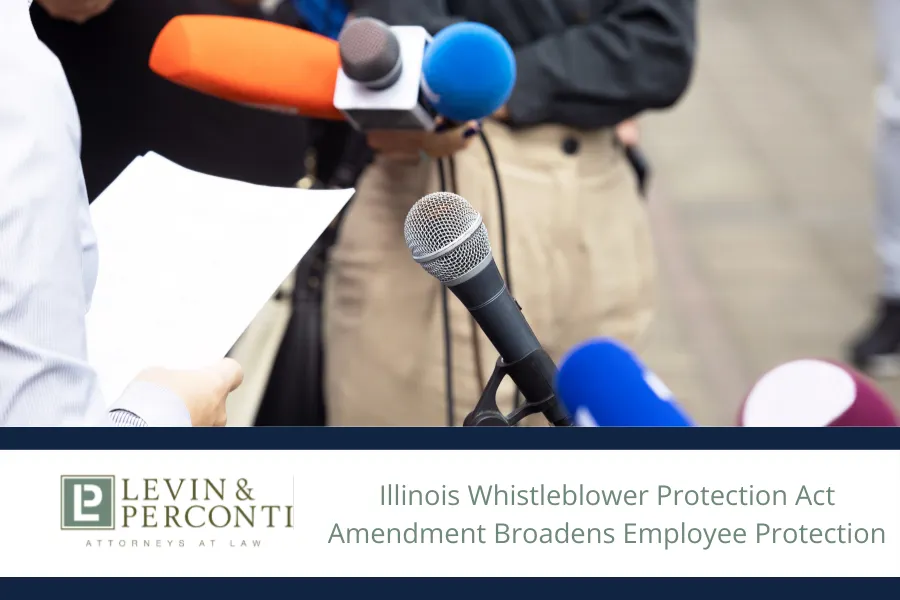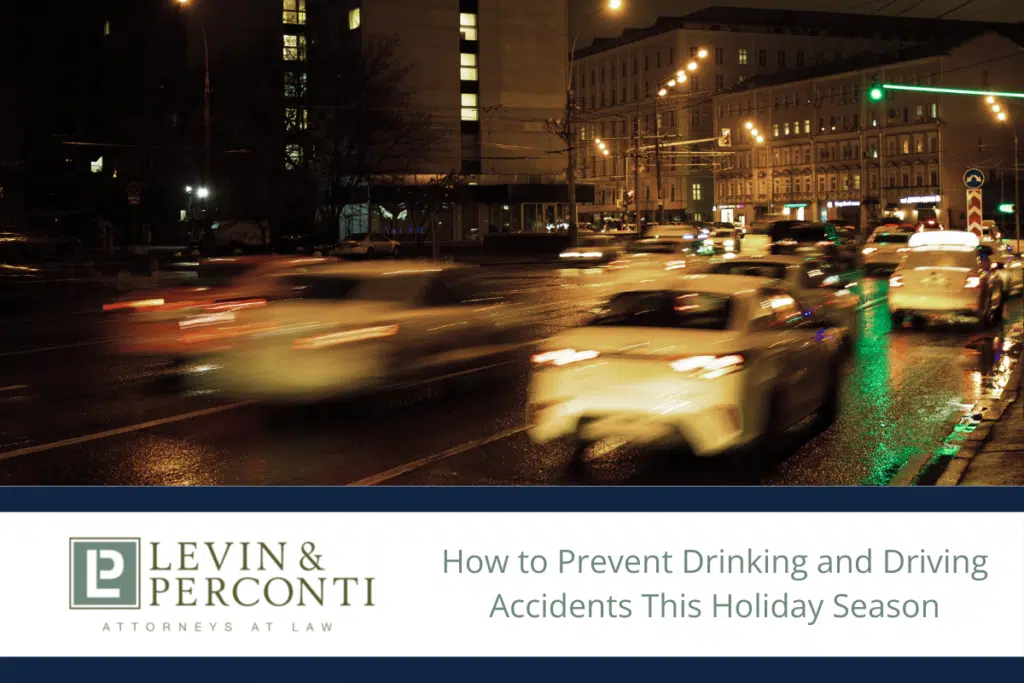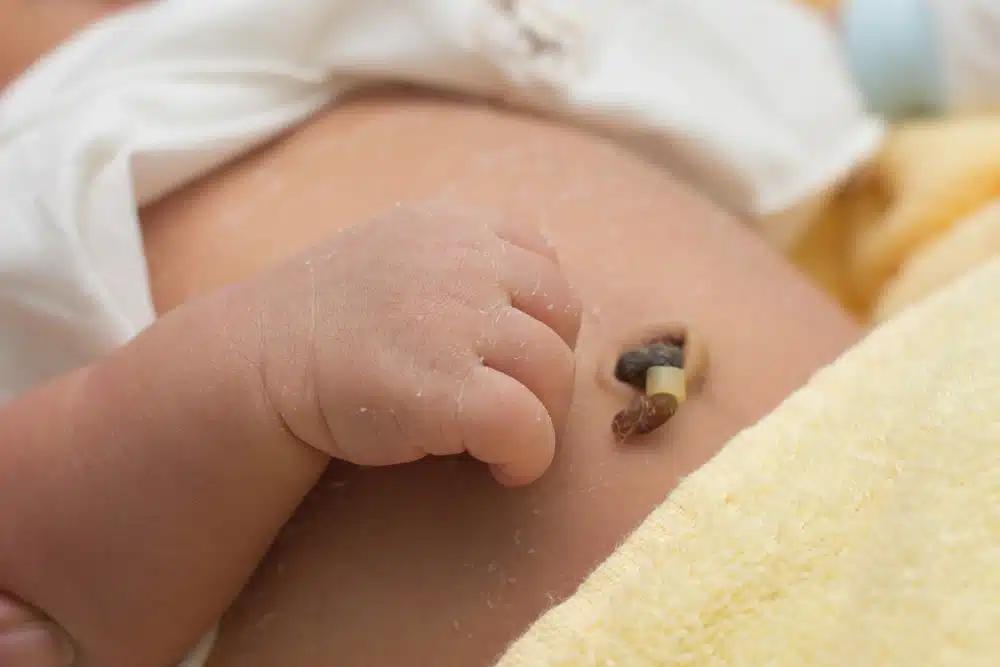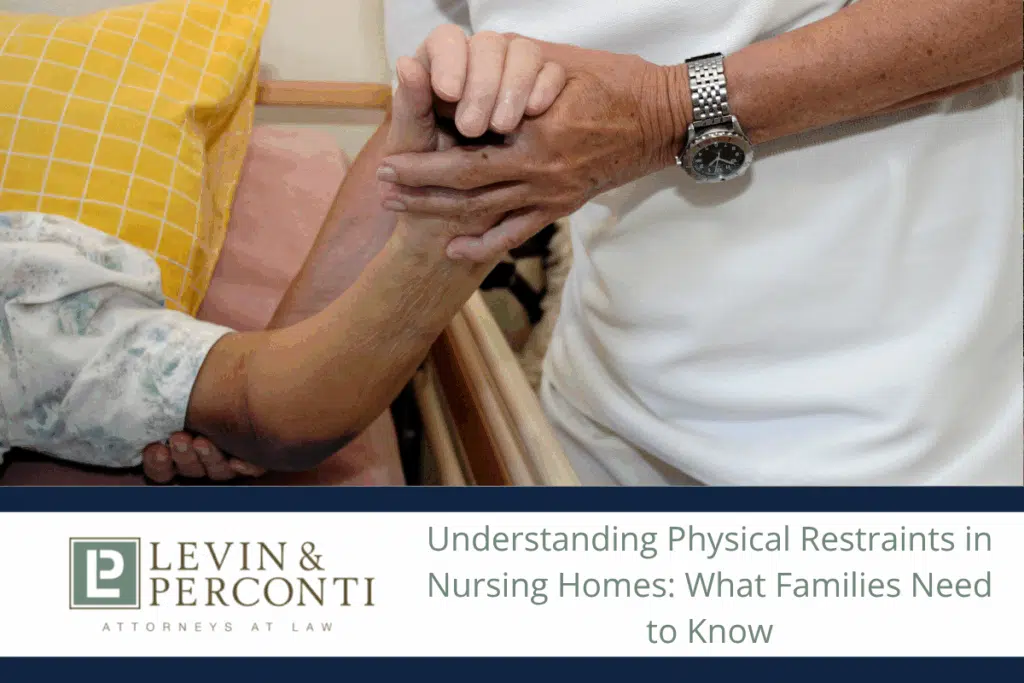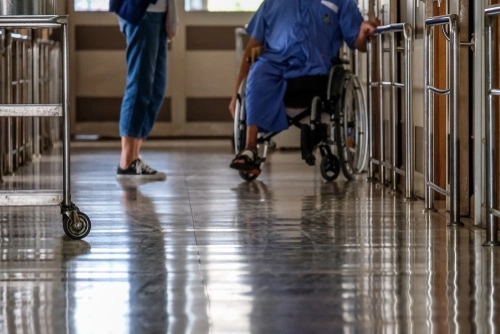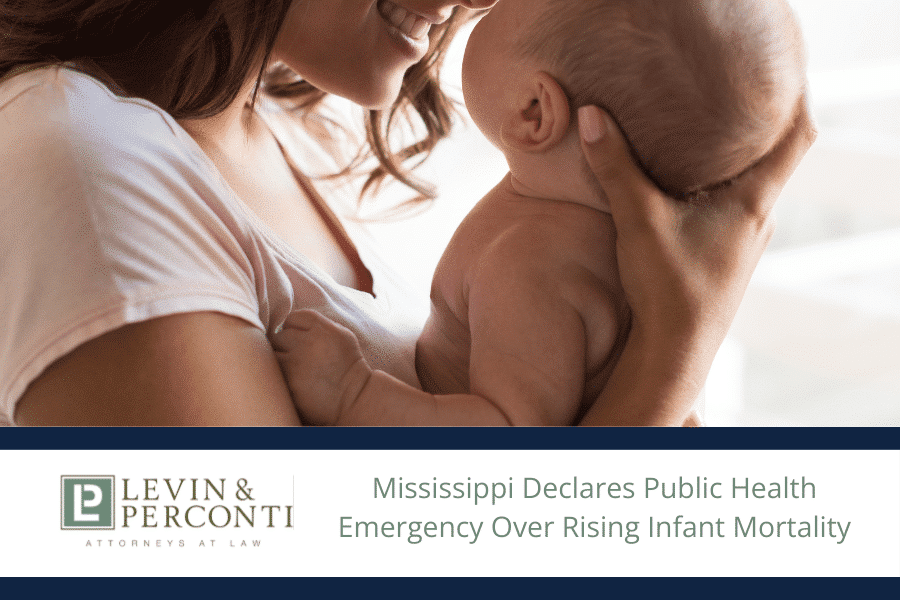Newborn Seizures Attorneys

Seizures in babies can be the result of traumatic brain injuries suffered during birth. If left untreated, they can cause further brain damage. At Levin & Perconti, our birth injury attorneys seek to hold doctors accountable when their negligent actions directly contribute to newborn seizures and other birth injuries.
Home | Chicago Birth Injury Lawyer | Newborn Seizures Attorneys
Quick Links
- What causes neonatal seizures?
- Common Types of Seizures in Babies
- What do seizures look like in a newborn?
- How common are seizures in newborns?
- What impacts can a seizure have on a baby?
- What type of compensation can you receive?
- Who is liable for newborn seizures?
- How to File an Infant Seizures Claim
- How can our birth injury attorneys at Levin & Perconti help?
- Past Client Testimonials
- Contact Our Experienced Birth Injury Lawyers
A seizure is a sudden, excessive, and abnormal electrical activity in the brain that typically causes disorientation, involuntary movements, or loss of consciousness. Newborn seizures, otherwise known as “neonatal seizures,” afflict babies who are less than 28 days old. Most occur in the first one to two days or within the first week of a baby’s life. According to data from the National Institutes of Health, the prevalence rate for neonatal seizures is approximately three per 1,000 live births.
What causes neonatal seizures?
Certain factors may provoke abnormal electrical activity in the brain leading to neonatal seizures, including:
- Lack of oxygen before or during birth
- Blood clots or bleeding in the brain
- Blood sugar imbalance
- Genetic conditions, such as self-limiting familial infantile seizures
- Stroke
- Birth defects
- Prolonged labor or delayed C-section
- Metabolic disorders
- Head trauma, often from assisted delivery tools such as vacuum pumps or forceps
- Placenta abnormalities or complications
- Infections that typically manifest during pregnancy or immediately after birth, such as meningitis, rubella (German measles), encephalitis, or toxoplasmosis
- Hypoxic-ischemic encephalopathy (HIE), or oxygen deprivation in the baby’s brain
Sometimes, a doctor’s negligence can contribute to or cause these conditions. If medical malpractice occurs during labor or delivery, a newborn is more likely to develop abnormalities that may trigger seizures.
Common Types of Seizures in Babies
Several different types of neonatal seizures can affect babies, presenting with an array of symptoms. The most common types are:
Subtle Seizures
True to their name, these seizures can be challenging to recognize. They often manifest as a movement in the eyelids or lips or a change in breathing patterns. In some cases, your infant might exhibit bicycling movements of their legs, brief jerks, or stiffening of their limbs and body. In other cases, your child might be less alert than usual.
Clonic Seizures
A clonic seizure presents as repeated jerking movements of your baby’s arms and legs on one or both sides of their body. It can last anywhere from a few seconds to one minute.
Tonic Seizures
A tonic seizure can cause your baby’s body to stiffen abruptly. They might also look to the side with one arm extended and the other bent.
Myoclonic Seizures
During a myoclonic seizure, your baby’s entire upper body might suddenly jerk forward. Both legs may jerk up towards their stomach with the knees bent.
Grand Mal Seizures
Also called generalized tonic-clonic seizures (GTC), this type of infant seizure typically exhibits five distinct phases. First, your baby’s body, legs, and arms will flex (contract), straighten out (extend), and shake (tremor). Next, your baby will contract and relax their muscles (clonic period). Finally, the seizure subsides during the postictal period, in which your infant might be sleepy or disoriented. However, not all of these phases occur in every baby with this type of seizure.
What do seizures look like in a newborn?
Because newborns can’t communicate what they’re feeling in words, physicians and parents must monitor them closely to spot symptoms of a seizure disorder. Failure to identify and manage signs of newborn seizures early on can lead to devastating effects in the long term, including permanent brain damage.
Signs of neonatal seizures can vary greatly, depending on the type and severity of the infant’s seizure. The following symptoms are usually apparent in babies experiencing a seizure:
- Periods of rapid eye blinking
- Staring
- Repetitive mouth movements or chewing motions
- Jerking of limbs or body spasms
- Bicycling movement in the legs
- Loss of consciousness
- Turning the eyes or head to one side
How common are seizures in newborns?
As many as three in 1,000 babies experience a seizure. The prevalence in preterm infants is even higher, with 57 to 132 babies per 1,000 live births suffering from seizures.
Based on data from NIH, subtle seizures are the most common type of seizures in newborns, representing 50% of all incidences. Clonic seizures (25%) are the next most common, followed by myoclonic seizures (20%), and lastly, tonic seizures (5%).
What impacts can a seizure have on a baby?
Some neonatal seizures are mild and don’t cause any lasting health problems. However, prolonged and untreated seizures can cause permanent damage due to reduced oxygen flow to the brain.
Some short-term effects of neonatal seizures include:
- Difficulty in moving limbs, arms, or the head
- Increased heart rate
- Appearing confused or in a haze
- Breathing problems
The long-term effects of newborn seizures can be more profound and devastating. They often include:
- Brain damage
- Frequent loss of concentration
- Forgetfulness
- Permanent weakness or numbness on one side of the body
- Slurred speech
- Epilepsy (this disorder develops in about half of all babies who suffer neonatal seizures)
Newborn seizures related to brain injuries like hypoxic-ischemic encephalopathy (HIE) can have further long-term complications, including cerebral palsy and various intellectual and developmental disabilities.
What type of compensation can you receive?
If your baby experiences frequent seizures due to someone else’s negligence or wrongdoing during the birthing process, you might be eligible to receive financial compensation for the following economic and non-economic damages or losses:
- Pain and suffering
- Medical expenses (including past, present, and estimated future costs)
- Loss of future earning capacity (if you have to leave a career to become a full-time caretaker for your child)
- Loss of enjoyment of life
- Home or facility-based care expenses
- Emotional distress
A birth injury lawyer will evaluate your case, determine provable wrongdoing, and calculate your losses accordingly. Every case can vary as to eligible compensation due to the unique facts of each circumstance and the level of wrongdoing or different losses associated with each injury leading to your infant’s seizures. Your lawyer can better assess the estimated value of your claim before you decide to litigate or seek a reasonable settlement.
Who is liable for newborn seizures?
In most cases involving birth injuries and neonatal seizures, the following professionals might be liable for your child’s resulting harm:
Doctor/Physician
Your doctor has a duty to keep both you and your baby safe. Failure to act within the mandated standard of care or provide the minimum acceptable care to a patient determined by relevant laws, internal policies, and professional guidelines can constitute medical malpractice.
Medical Staff
Sometimes, medical staff other than your doctor need to help deliver your baby. The same industry protocols and safety standards apply to them as well. When a staff member’s actions or inactions amount to negligence, causing injury and a subsequent seizure disorder affecting your baby, you might be able to sue the nurse or other medical professional for medical malpractice.
Hospital
In some cases, the hospital or medical center where you gave birth can be held liable for a birth injury that occurred while you were at their facility receiving care.
How to File an Infant Seizures Claim
As a new mother, you may be full of questions and anxieties following your child’s birth and accompanying injury. Watching your newborn suffer from seizures is unsettling and might make you feel helpless to protect your infant. However, you can protect your child legally by holding the responsible parties accountable. In many cases where medical malpractice was a contributing factor to your child’s harm and resulting seizures, you may have a legal right to file an infant seizure claim on behalf of your baby.
There are several steps you can take to pursue justice and compensation to ease the financial burden of your child’s increased past, present, and ongoing needs, including:
- Talk to an Attorney: Contacting a Chicago medical malpractice lawyer ASAP will help you decide how to proceed based on the validity of your claim, its worth, and your best chances for the most favorable outcome for your child and your family.
- Gather Medical Records: Once you have the records, share them with your attorney so they can start building a solid case for you. Additionally, a birth injury lawyer may be able to help you compile needed evidentiary documents that are challenging to retrieve to best support your claim.
- Establish if your Health Care Provider Followed the Required Standard of Care: With the help of medical experts and other evidence, your attorney will establish whether your physician or other medical care providers upheld their duty to provide you with the required standard of care during your delivery. If not, you have the option to allow your attorney to litigate the case or negotiate an agreed-upon settlement.
- Follow All Pre-Suit Requirements: Many states have formalized pre-filing requirements for medical malpractice cases. For instance, in Illinois, you must file the claim within two years of the date the injury occurred or the date you reasonably knew or should have known about the injury. Failure to do so may result in the dismissal of your claim.
- File the Complaint to Initiate Your Case: Your attorney can walk you through this final step to ensure the timely filing of all necessary and relevant forms with the appropriate court.
It’s tempting to try to handle your claim on your own or avoid taking legal action altogether. Often, neither scenario results in the most positive results for your child or your family. Additionally, failing to hold accountable the parties negligently or knowingly inflicting harm can lead to others suffering the same or worse injuries. Most importantly, your child might need medical attention and treatment for many weeks, months, or years, and it’s ideal to have the necessary financial support to get them the top medical care to help them thrive.
Speak with a knowledgeable and trustworthy birth injury lawyer today to learn more about your legal options.
How can our birth injury attorneys at Levin & Perconti help?
If your family is feeling the impact of neonatal seizures, don’t hesitate to call the birth injury attorneys at Levin & Perconti today. We can’t turn back the clock and undo the harm to your child and your family, but we can at least perform a case evaluation to determine how we can best help you receive the compensation you need to ease your economic suffering and get the required care and treatment for your infant to promote healing.
Our attorneys have a long history of holding parties accountable for malpractice. Some of the birth injury lawsuits we’ve successfully litigated include:
- $27 million verdict for a child who suffered a brain injury due to the negligence of nurses and residents during labor.
- $16 million settlement for a child who suffered a brain injury due to negligent nursing and medical care during labor and cesarean section.
- $14 million verdict for a child who suffered a brain injury due to lack of oxygen during birth.
- $11.5 million settlement for a child with hypoxic-ischemic brain injury.
- $9 million settlement for a baby who suffered permanent brain damage as a result of a doctor’s failure to test the mother for Group B Strep Meningitis during prenatal care.
- $6.5 million for a newborn brain injury due to a lack of competent medical professionals during a neonatal resuscitation.
To discuss your concerns with an experienced birth injury attorney at our firm, please schedule a free consultation today.
If your family is feeling the impact of neonatal seizures, don’t hesitate to call the birth injury attorneys at Levin & Perconti today. We can’t turn back the clock and undo the harm to your child and your family, but we can at least perform a case evaluation to determine how we can best help you receive the compensation you need to ease your economic suffering and get the required care and treatment for your infant to promote healing.
Our attorneys have a long history of holding parties accountable for malpractice. Some of the birth injury lawsuits we’ve successfully litigated include:
Verdict for a child who suffered a brain injury due to the negligence of nurses and residents during labor.
Settlement for a child who suffered a brain injury due to negligent nursing and medical care during labor and cesarean section.
Verdict for a child who suffered a brain injury due to lack of oxygen during birth.
Settlement for a child with hypoxic-ischemic brain injury.
Settlement for a baby who suffered permanent brain damage as a result of a doctor’s failure to test the mother for Group B Strep Meningitis during prenatal care.
For a newborn brain injury due to a lack of competent medical professionals during a neonatal resuscitation.
To discuss your concerns with an experienced birth injury attorney at our firm, please schedule a free consultation today.
Past Client Testimonials
Don’t take our word for it. Hear from some of the medical malpractice victims we’ve helped:
Not only were they so professional but also so caring and thoughtful. It was very difficult going over the facts in our mother's case but they were so compassionate and understanding and allowed us to be with them every step of the way. We were able to sit in on the depositions and we were really able to see how hard they worked on our behalf.

During that time, my family and I suffered the loss of my mother. Mr. Levin and Mr. Perconti were more than just our lawyers. Words can’t really express our gratitude.

They were most patient and responded timely to many questions throughout the entire process. All demonstrated professionalism and extensive knowledge of case and state laws. Their in-depth investigative work uncovered details which were unknown to us and yet sadly confirmed our suspicions. We would recommend the Levin and Perconti Law firm and especially this team.

During that time, my family and I suffered the loss of my mother. Mr. Levin and Mr. Peconti were more than just our lawyers. Words can’t really express our gratitude. My family and I will always be grateful for the compassion that they showed us. I want to thank you for what you did for my family, and for always being there for us.

Margaret’s representation, guidance, and professionalism gave us the sense that we could put our trust in Levin & Perconti and the final outcome proved that to be true.

Legally Reviewed by

Read Bio
Since 1979, Dov Apfel has been passionate about advocating for birth injury and medical malpractice victims. Mr. Apfel’s career-long record of achievements in birth injury litigation, education, and advocacy has been recognized by the Executive Board of the Birth Trauma Litigation Group of the American Association for Justice. His expertise is demonstrated by his numerous awards, presentations on birth injury topics at legal conferences for organizations like the AAJ and ATLA, and articles published by Trial Magazine and many others.
Related Pages
Notable Results
for failure to properly read pap smears, resulting in the misdiagnosis of cervical cancer and eventual death of a 35-year-old mother of three children.
for failing to biopsy a known breast tumor, resulting in the delay of diagnosis of breast cancer, causing death.
for failing to perform an annual pelvic exam, which resulted in the untimely diagnosis of ovarian cancer.
Contact Our Experienced Birth Injury Lawyers
If your family is feeling the impact of neonatal seizures, don’t hesitate to call the birth injury attorneys at Levin & Perconti today.
To discuss your concerns with an experienced birth injury attorney at our firm, please schedule a free consultation today or call us at (312) 332-2872

Related Blogs

